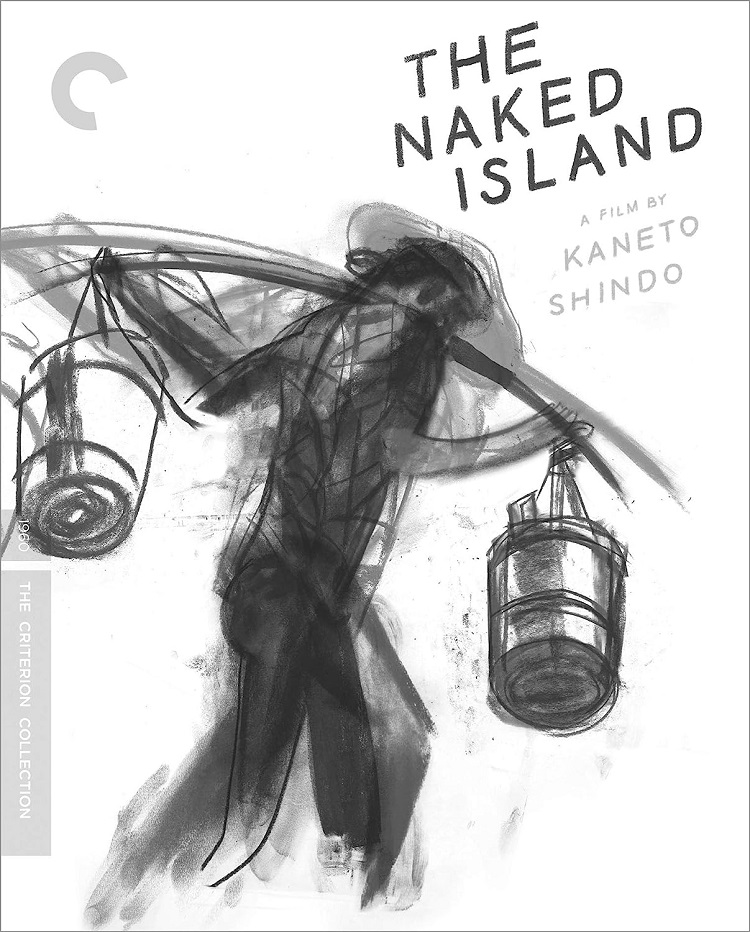
Kaneto Shindo’s film about the daily struggles of a poor farming family has one major hook: a total absence of dialogue. Filmed in black and white on a rocky speck of an island off the coast of Japan, the film initially plays more like a documentary than a narrative film until a tragic event unfolds in the final act. Up until that point, the daily monotony of hardscrabble farming life wears out its welcome as a film subject long before its allotted time is over.
The family consists of a middle-aged man, his younger wife, and their two young sons. Mom and dad spend their days laboriously rowing a tiny boat to the mainland to fill huge buckets with fresh water, then paddling it back to their desolate island to water their meager crops. The jagged little island has no business being anyone’s home or farmland, but the film suggests that the family is so poor that they can’t afford any other option. Their daily routine is seemingly only interrupted by the local school schedule for the boys, where mom and dad have to row them back and forth to the mainland as added passengers on their endless water fetching voyages. On a rare special occasion, the whole family dresses up and heads into town for dinner and a little window-shopping, but aside from that their lives are pure drudgery. That hopelessness is firmly established within the first ten minutes, making the following hour of reinforcement largely unnecessary for all but the most devoted fans of Japanese peasant-farming techniques.
Although I grew restless about the film’s seeming lack of purpose, I was surprised to find that Shindo had somehow made me care about the family by the time the final act tragedy struck. Granted, it seemed like a clumsily contrived event, but somehow just experiencing their dreary lives leading up to that even drearier occurrence left me fully feeling the monumental weight of their loss. Without the tragedy, it’s highly unlikely the film would have ever generated the lasting appeal necessary to generate a Criterion release, although in my opinion the film as a whole remains more of a curiosity than a classic. While Shindo succeeds in painting a vivid picture of the peasant family without dialogue, it’s difficult to recommend the full film as a genuinely engaging, worthwhile endeavor.
The digitally restored image has been burnished to near perfection for this Blu-ray release, with only the slightest of dirt/scratches remaining. Sound quality is unremarkable since there’s not much audio to speak of aside from Hikaru Hayashi’s oddly modernist score, but the natural sounds of the farm and sea are cleanly conveyed on the uncompressed monaural track. The special features revolve around the surprising guest reveal of Benicio Del Toro, an ardent fan of the film who was instrumental in arranging a 2011 retrospective of Shindo’s films in New York City. Del Toro recorded his own appreciation of the film exclusively for this release, while elsewhere Criterion thoughtfully included Shindo’s filmed thanks and introduction to the audience that attended his retrospective, where he specifically thanked Del Toro for his involvement. The special features are rounded out by a new interview with a film scholar, a trailer, and an audio commentary track by Shindo and Hayashi recorded in 2000.